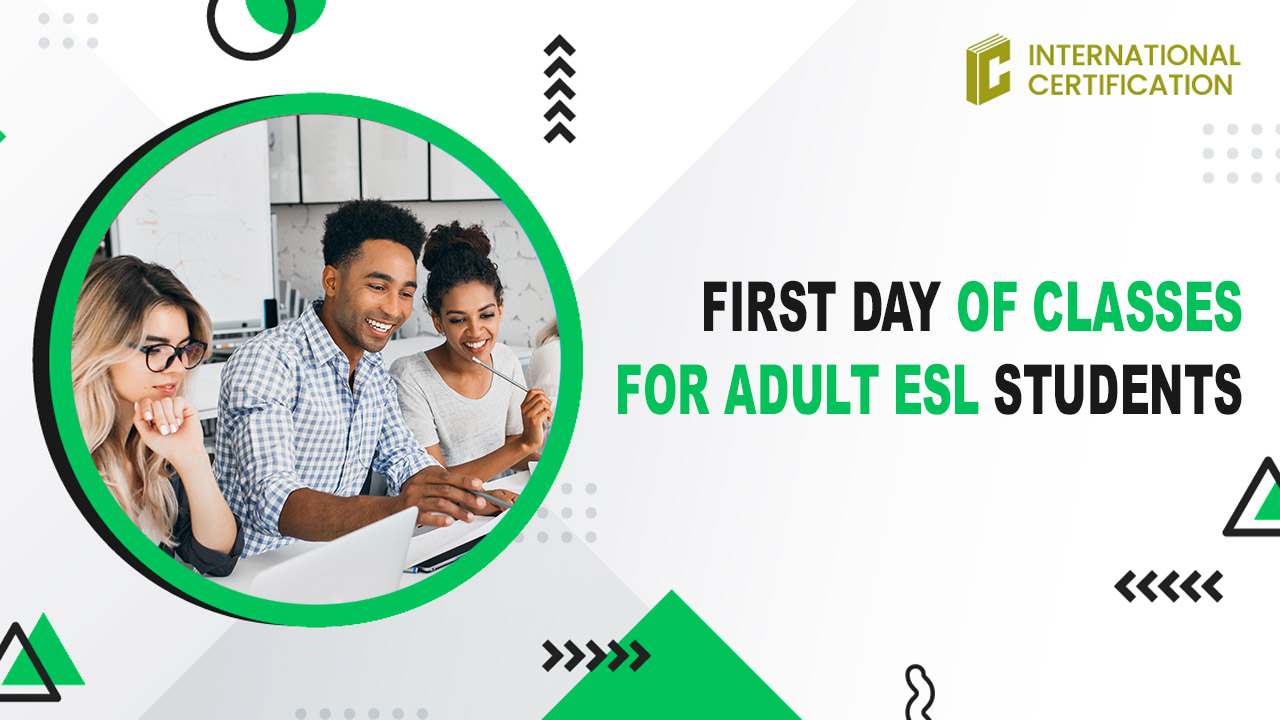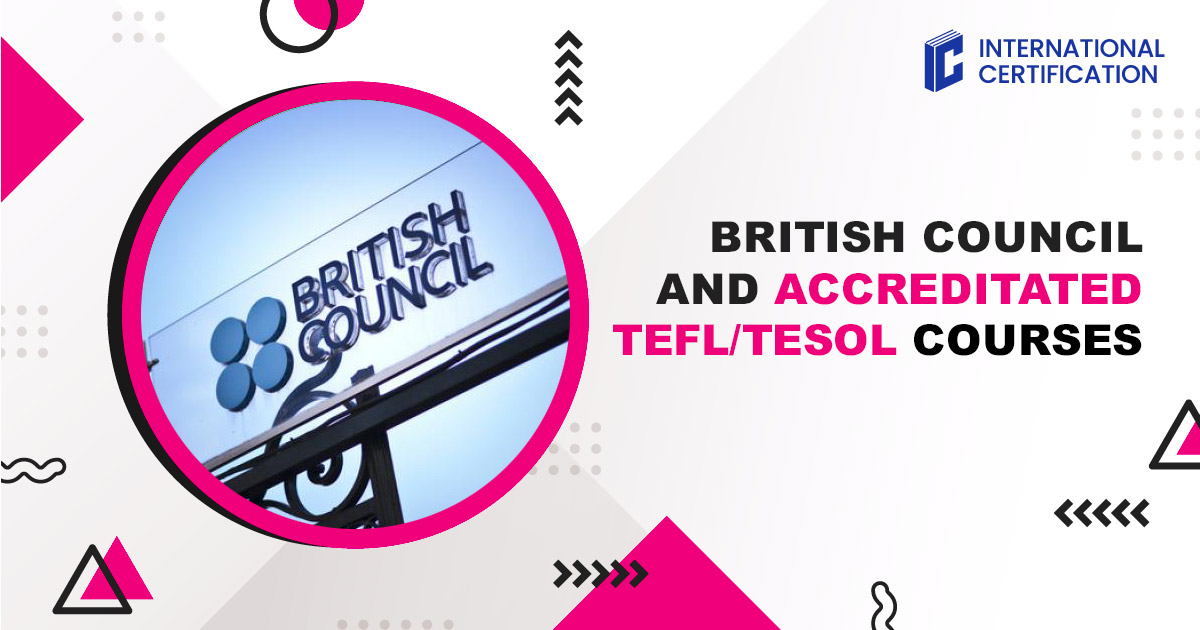And start earning money 💸 by teaching English in your own country, abroad, or online from anywhere on the planet! 🎁 Gifts and bonuses: professional support from your personal coach 🧑🏫 and job placement assistant 💼.
Table of contents
The first lesson might be worrying not only for teachers, but also for learners. You have no idea regarding their levels and skills, goals, and interests, so you have many things to do. The first day is not the right time to overwhelm learners with difficult tasks and long lectures. They will have enough time to dive deep into nuances. What is more important is to make new students feel comfortable on the first day. Let them know, they can trust you. But don't try to become one of them otherwise, they won't respect you. This day is also important for you because of the first impression. You should express sympathy and compassionate curiosity. Be serious, but don't neglect an opportunity to show your sense of humor.
- pay attention to peoples' attitudes, how they relate to each other;
- notice those, who are reserved and try to keep silent;
- let them know that there is nothing wrong with making mistakes;
- explain tasks in a nutshell, make instructions clear;
- be positive and easy-going.
Whether you have been teaching English for a long time or not, you must know that teaching young learners and adults is different.
Video
Lesson plan
If you think that the first class doesn't require preparation, you are wrong. The more exercises you have, the better. However, all of them must be ranged in an appropriate order. Usually, a lesson plan takes into account a goal. If you are used to working with textbooks, leave them till the third class. Unfortunately, people tend to forget to take coursebooks on the first day. Don't stick to books and let your imagination work. Adult learners appreciate different exercises, which don't require boring books. If you have this pattern, you will be able to change it with ease every time, when you come up with activities for a first day of lessons.
Usually, lesson plan consists of:
- warm-up activities;
- lead-in;
- two or three tasks depending on the main goal;
- cool-down;
- reflection or summary.
That's important to highlight the difference between warm-up tasks and lead-in ones. The first thing is supposed to help people to get back on track and turn on studying mode. The second is a necessary introduction before doing the main exercises relate to the topic. Finally, you must lead English learners to the end. Cool-down exercises are fun ways to train something especially if you've just covered grammar. The last part is supposed to help adults in ESL classroom to make their conclusion regarding a topic.
Activities
When you have a structure, you can adjust and change tasks regarding participants' interests and preferences. Don't forget to take into account learners' strengths and weaknesses. Such information will become valuable when you start pairing them up.
Icebreakers
ESL icebreakers are similar to warm-ups. However, the main idea is getting people to know each other. It will help to show, they are in a friendly environment. Such tasks must make them share personal information.
3 truths and a lie
In this case, students are supposed to make 4 statements about themselves, where three sentences are supposed to be truth, and one is a lie. Then everyone must share those facts with classmates, and they vote, where truths are, and where a lie is.
Who
Another ESL game for adults is a fun way to check grammar comprehension. Make a list of 20 questions and write them on a board and voice.
For example:
- Who was born in January?
- Who has traveled to Asia?
- Who has pets at home?
Instead of answering, learners raise their hands. And when you've gone through all sentences, they have to create a statement to each question relying on memory, like, "Diana and Alex were born in January".
Vocabulary
As we discussed, filling the gaps and other typical exercises from a coursebook are not appropriate for a first day of lessons. There are some ideas on how you can involve newbies in a new topic.
Mind-map
Advanced students like drawing as well as beginners. When we come across a sophisticated kind of vocabulary such as society, or environment, the most difficult part is making learners use it. Divide people into 3-4 groups, and assign to draw a mind-map with all new words from the topic, which are ranged regarding some principles. Then each group must present their maps to each other and explain the reason of such a classification.
Guess what
Separate whole class into 2 teams, and choose 2 representatives. They need to stand in front of classmates with backs facing a board. Write down 2 words on a board for teams. The rest of the class must explain those words to representatives without saying. It's the best way of paraphrasing and building vocabulary knowledge.
Listening
Use funny short videos to entertain your class and make attentive to details. Prepare a short cartoon, where 2 main characters are, and turn off the sound. Pair up students and assign to voice those characters using a particular structure.
Find a video interview of a famous person, and let learners listen without watching. Separate them into 3-4 groups, they have to guess, who that person is. Then, they present their assumptions, paying attention to facts in the interview to explain their choice.
Speaking
There are ESL games, which encourage students to speak English. Adjust them depending on skill levels. Moreover, such ESL activities are supposed to maintain a goal of a whole lesson. Whatever you teach, put it in a speaking part.
Who am I?
The best way to train closed questions regarding an English tense. Prepare small cards or stickers for everyone, students are supposed to write one noun on a card. Then, shuffle cards and pass them. No one should look at their slips, they must place cards on their foreheads. Students take turns, one by one, and ask yes or no questions in order to guess what's written on their cards.
Spontaneous speech
Prepare some controversial topics, which appeal to students to share their ideas. People should prepare a speech, an opinion with arguments regarding the statements. Give a minute to think and start. That's a perfect task will help you to identify learners' levels and skills to explain their opinion. Then, you can conduct debates, pairing people up according to opposite opinions. It fits learners with Pre-Intermediate or higher level. Provide support while students are talking.
Grammar
It seems that a number of games to teach grammar is always insufficient. Truth be told, one hour is enough to get adults familiar with a structure, not to learn it by heart. That's why it's important to show them the meaning of Present Perfect or Past simple in real life. Choose current materials and don't ignore social platforms.
Interview
Choose a long Instagram post or find an interview of a celebrity on the Internet. Print it or send it to all participants, in case of online teaching. They read and write down 10 questions to the article using different tenses. Then, each student voices one question, while others are crossing it out if they have the same. It's a nice way to show how important an ability to field.
Put in the right order
That's easy to conduct because there is almost no preparation. Choose some sentences and write them down on a board, making a mess with word order. Each person of a class must make the correct sentence using all words on the board. You may create an additional task if a person makes a question to each sentence that he's done.
Writing
Despite the fact that writing takes much time, it's a good way to check literacy. Choose a topic and start making a story using all new words and covered grammar. Then choose players, one by one, to continue your story writing one sentence on a board. They can add fun things to make everybody laugh. The same exercise you can do regarding Christmas. Learners must write their wishes or plans for next year. The more information you know about your class, the better.
Reading
That's a kind of free practice of learning English that helps teachers to understand adults' level. If you don't want to make everybody get bored during the lesson, combine it with something else. You can demonstrate new vocabulary as a lead-in in a short story. Don't assign one person to read the whole text, assign everyone. To check reading comprehension you may ask, "What's the main idea of the story?" The best idea is a combination of listening and reading tasks. It works for beginners, who don't know many words. Prepare a script of audio. Firstly, assign to read it, fill the gaps or answer the questions, and then, give them audio to listen to and help to retell. Another good idea is to check peoples' behavior and put reading in is classroom rules. Assign everybody to create a rule and write it down. Then, players are reading them out loud.
💡 Unlock the secrets to doubling your teaching income with our exclusive checklist! 🎯 This checklist is designed for English teachers who want to 📈 attract more students and 🔥 keep them engaged for the long term.
Conclusion
Such classroom activities help not only draw adult students' attention but also get information regarding their skills and levels. Some of those tasks don't require preparation if you know a goal. The mission of the first day of English class is to spark motivation in students' eyes. Show them that learning may be entertaining and inspiring. As long as you know their hobbies and purposes, you will find appropriate and relevant materials with ease. If you are nervous every time, when you teach English, probably you lack of confidence in your knowledge. TEFL/TESOL course has sections in terms of teaching listening, vocabulary, grammar, and other skills. You will know how to guide people through their preferences and difficulties.
Check our homepage to get a 50% discount. We are waiting for your comments about having the first lesson with adults.
Terms used:
ESL, TEFL, TESOL

York Fern
An English instructor with 12+ years of experience. I work for an online school and travel the world, teaching students from various countries, leveraging my TEFL/TESOL certification. Seeing the world's oceans, mountains, and cities with my own eyes has given me a profound appreciation for the importance of quality education and international communication.
and start earning by teaching English in your country, abroad, or online from anywhere in the world! Order the course with a 50% discount 💸 and receive as a gift the support of a personal coach 👨🏫 and job placement assistant! 🎁🚀 Hurry, limited spots available! 🏃♂️💨
💡 Unlock the secrets to doubling your teaching income with our exclusive checklist! 🎯 This checklist is designed for English teachers who want to 📈 attract more students and 🔥 keep them engaged for the long term.
🚀 More students, 💰 higher income, 🌍 complete freedom! ✅ 112 verified platforms with top rates ⏳ Flexible schedule – work whenever and as much as you want 🎯 Simple requirements – start earning right away 💎 Boost your career and income by teaching students worldwide!
choose us?




